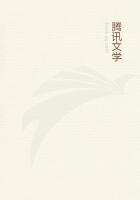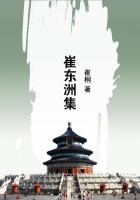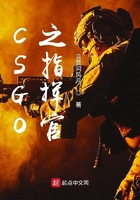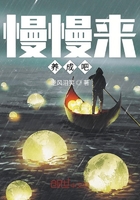I have never believed in political assassination as a means to an end, and least of all in assassination of the dynastic order. Idon't know how far murder can ever approach the perfection of a fine art, but looked upon with the cold eye of reason it seems but a crude expedient of impatient hope or hurried despair. There are few men whose premature death could influence human affairs more than on the surface. The deeper stream of causes depends not on individuals who, like the mass of mankind, are carried on by a destiny which no murder has ever been able to placate, divert, or arrest.
In July of last year I was a stranger in a strange city in the Midlands and particularly out of touch with the world's politics.
Never a very diligent reader of newspapers, there were at that time reasons of a private order which caused me to be even less informed than usual on public affairs as presented from day to day in that necessarily atmosphereless, perspectiveless manner of the daily papers, which somehow, for a man possessed of some historic sense, robs them of all real interest. I don't think I had looked at a daily for a month past.
But though a stranger in a strange city I was not lonely, thanks to a friend who had travelled there out of pure kindness to bear me company in a conjuncture which, in a most private sense, was somewhat trying.
It was this friend who, one morning at breakfast, informed me of the murder of the Archduke Ferdinand.
The impression was mediocre. I was barely aware that such a man existed. I remembered only that not long before he had visited London. The recollection was rather of a cloud of insignificant printed words his presence in this country provoked.
Various opinions had been expressed of him, but his importance was Archducal, dynastic, purely accidental. Can there be in the world of real men anything more shadowy than an Archduke? And now he was no more; removed with an atrocity of circumstances which made one more sensible of his humanity than when he was in life. Iconnected that crime with Balkanic plots and aspirations so little that I had actually to ask where it had happened. My friend told me it was in Serajevo, and wondered what would be the consequences of that grave event. He asked me what I thought would happen next.
It was with perfect sincerity that I answered "Nothing," and having a great repugnance to consider murder as a factor of politics, Idismissed the subject. It fitted with my ethical sense that an act cruel and absurd should be also useless. I had also the vision of a crowd of shadowy Archdukes in the background, out of which one would step forward to take the place of that dead man in the light of the European stage. And then, to speak the whole truth, there was no man capable of forming a judgment who attended so little to the march of events as I did at that time. What for want of a more definite term I must call my mind was fixed upon my own affairs, not because they were in a bad posture, but because of their fascinating holiday-promising aspect. I had been obtaining my information as to Europe at second hand, from friends good enough to come down now and then to see us. They arrived with their pockets full of crumpled newspapers, and answered my queries casually, with gentle smiles of scepticism as to the reality of my interest. And yet I was not indifferent; but the tension in the Balkans had become chronic after the acute crisis, and one could not help being less conscious of it. It had wearied out one's attention. Who could have guessed that on that wild stage we had just been looking at a miniature rehearsal of the great world-drama, the reduced model of the very passions and violences of what the future held in store for the Powers of the Old World? Here and there, perhaps, rare minds had a suspicion of that possibility, while they watched Old Europe stage-managing fussily by means of notes and conferences, the prophetic reproduction of its awaiting fate. It was wonderfully exact in the spirit; same roar of guns, same protestations of superiority, same words in the air; race, liberation, justice--and the same mood of trivial demonstrations.
One could not take to-day a ticket for Petersburg. "You mean Petrograd," would say the booking clerk. Shortly after the fall of Adrianople a friend of mine passing through Sophia asked for some CAFE TURC at the end of his lunch.
" Monsieur veut dire Cafe balkanique," the patriotic waiter corrected him austerely.
I will not say that I had not observed something of that instructive aspect of the war of the Balkans both in its first and in its second phase. But those with whom I touched upon that vision were pleased to see in it the evidence of my alarmist cynicism. As to alarm, I pointed out that fear is natural to man, and even salutary. It has done as much as courage for the preservation of races and institutions. But from a charge of cynicism I have always shrunk instinctively. It is like a charge of being blind in one eye, a moral disablement, a sort of disgraceful calamity that must he carried off with a jaunty bearing--a sort of thing I am not capable of. Rather than be thought a mere jaunty cripple I allowed myself to be blinded by the gross obviousness of the usual arguments. It was pointed out to me that these Eastern nations were not far removed from a savage state. Their economics were yet at the stage of scratching the earth and feeding the pigs. The highly-developed material civilisation of Europe could not allow itself to be disturbed by a war. The industry and the finance could not allow themselves to be disorganised by the ambitions of an idle class, or even the aspirations, whatever they might be, of the masses.
Very plausible all this sounded. War does not pay. There had been a book written on that theme--an attempt to put pacificism on a material basis. Nothing more solid in the way of argument could have been advanced on this trading and manufacturing globe. War was "bad business!" This was final.















